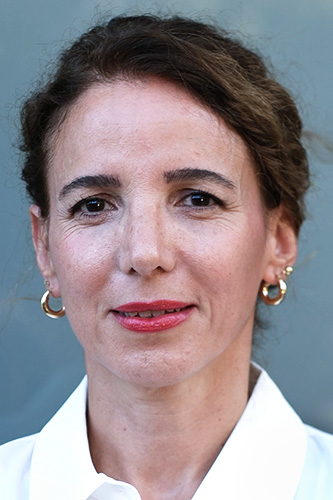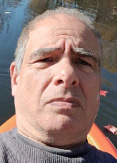

 The reports of multistakeholder Internet governance's demise are greatly exaggerated. This article explores the dual nature of multistakeholderism: its evolving, sometimes contentious practice as the "First Body," and its enduring principle of actor plurality as the "Second Body." Despite criticism and challenges, multistakeholderism remains crucial for a resilient, non-state-led Internet, underscoring the need to adapt and uphold its foundational pluralism. more
The reports of multistakeholder Internet governance's demise are greatly exaggerated. This article explores the dual nature of multistakeholderism: its evolving, sometimes contentious practice as the "First Body," and its enduring principle of actor plurality as the "Second Body." Despite criticism and challenges, multistakeholderism remains crucial for a resilient, non-state-led Internet, underscoring the need to adapt and uphold its foundational pluralism. more
 The European Union (EU) has set a high bar by tackling domain name system (DNS) abuse head on via government regulation and seems to have successfully resisted attempts to water down DNS stewardship obligations. Recent guidance from a key European Commission cooperation group (the NIS Cooperation Group) handling sections of the Network and Information Security Directive (NIS2) intends for a robust implementation of Article 28, which will go a long way toward helping to mitigate some of the longstanding problems that persist in the DNS. more
The European Union (EU) has set a high bar by tackling domain name system (DNS) abuse head on via government regulation and seems to have successfully resisted attempts to water down DNS stewardship obligations. Recent guidance from a key European Commission cooperation group (the NIS Cooperation Group) handling sections of the Network and Information Security Directive (NIS2) intends for a robust implementation of Article 28, which will go a long way toward helping to mitigate some of the longstanding problems that persist in the DNS. more
 ICANN must act now to harmonize its domain name registration data (commonly known as WHOIS) policies with Article 28 of the European Union's Network and Information Security (NIS2) directive, first to adhere to applicable laws as it fulfills its oversight responsibilities and, second, to keep its word to the community to preserve WHOIS to the fullest extent possible under law. more
ICANN must act now to harmonize its domain name registration data (commonly known as WHOIS) policies with Article 28 of the European Union's Network and Information Security (NIS2) directive, first to adhere to applicable laws as it fulfills its oversight responsibilities and, second, to keep its word to the community to preserve WHOIS to the fullest extent possible under law. more
 At the recent Internet Corporation for Assigned Names and Numbers (ICANN) 80 Policy Forum meeting, one notable takeaway was its close focus on questions around the stability and security of the technical layer of the Internet: the growing risks which assail it, and potential ways to address these through governance. more
At the recent Internet Corporation for Assigned Names and Numbers (ICANN) 80 Policy Forum meeting, one notable takeaway was its close focus on questions around the stability and security of the technical layer of the Internet: the growing risks which assail it, and potential ways to address these through governance. more
 As Chairs of ICANN's Registries and Registrar Stakeholder Groups, we are proud to announce that we have initiated a new practice for the Contracted Parties Summits: the publication of our Contracted Parties Summit Statement. As you may (or may not) know, Contracted Parties get together periodically to interact and work together on issues that we care about, and which impact our businesses as registries and registrars. more
As Chairs of ICANN's Registries and Registrar Stakeholder Groups, we are proud to announce that we have initiated a new practice for the Contracted Parties Summits: the publication of our Contracted Parties Summit Statement. As you may (or may not) know, Contracted Parties get together periodically to interact and work together on issues that we care about, and which impact our businesses as registries and registrars. more
 In May of this year, I questioned whether the continued legal maneuvering of a company called Altanovo Domains Ltd. (Altanovo) could further delay the launch of .web. After reading its second Independent Review Process (IRP) complaint, and ICANN's response, it seems that the unfortunate answer is a resounding "yes," or at least that is Altanovo's intent. more
In May of this year, I questioned whether the continued legal maneuvering of a company called Altanovo Domains Ltd. (Altanovo) could further delay the launch of .web. After reading its second Independent Review Process (IRP) complaint, and ICANN's response, it seems that the unfortunate answer is a resounding "yes," or at least that is Altanovo's intent. more
 ICANN's response to the European Union's Network and Information Security Directive (NIS2) is a litmus test on whether its policy processes can address the needs of all stakeholders, instead of only satisfying the needs of the domain industry. Early indications from the ICANN Hamburg meeting point to another disappointment for law enforcement, cybersecurity professionals, and the many businesses seeking to reinstate WHOIS as required by NIS2. more
ICANN's response to the European Union's Network and Information Security Directive (NIS2) is a litmus test on whether its policy processes can address the needs of all stakeholders, instead of only satisfying the needs of the domain industry. Early indications from the ICANN Hamburg meeting point to another disappointment for law enforcement, cybersecurity professionals, and the many businesses seeking to reinstate WHOIS as required by NIS2. more
The European Union's Network and Information Security Directive (NIS1), introduced in 2016, aimed to strengthen cybersecurity among Member States. However, market fragmentation and growing digital threats led to the enactment of the NIS2 Directive. more
ICANN has introduced the Registration Data Request Service (RDRS), offering a standardized way to request access to nonpublic data for generic top-level domains (gTLDs). more
 On October 12, 2023, the 18th Internet Governance Forum (IGF) ended in Kyoto. It was, with more than 9000 registered participants, the largest IGF since its inception in 2006. UN Secretary-General Antonio Guterres and Japan Prime Minister Fumio Kishida opened the five-day meeting. The tangible output included 89 "IGF Messages from Kyoto," four substantial reports with recommendations from IGF Policy Networks (PN) for Artificial Intelligence... more
On October 12, 2023, the 18th Internet Governance Forum (IGF) ended in Kyoto. It was, with more than 9000 registered participants, the largest IGF since its inception in 2006. UN Secretary-General Antonio Guterres and Japan Prime Minister Fumio Kishida opened the five-day meeting. The tangible output included 89 "IGF Messages from Kyoto," four substantial reports with recommendations from IGF Policy Networks (PN) for Artificial Intelligence... more
 A recent invitation to participate in a webinar to discuss ICANN's Role in Satellite Internet Governance as an enabler of UN Sustainable Development Goal (SDG) 9 prompted me to consider this issue. As a legal scholar with expertise in telecommunications infrastructure, I had much to say and discuss about the new mega-constellation phenomenon and its potential role in achieving SDG9, which, for me, is a multifaceted and fascinating subject. more
A recent invitation to participate in a webinar to discuss ICANN's Role in Satellite Internet Governance as an enabler of UN Sustainable Development Goal (SDG) 9 prompted me to consider this issue. As a legal scholar with expertise in telecommunications infrastructure, I had much to say and discuss about the new mega-constellation phenomenon and its potential role in achieving SDG9, which, for me, is a multifaceted and fascinating subject. more
 This open letter, penned by Rami Schwartz, the CEO of Latin American Telecom LLC, addresses Universal Acceptance issues related to the .TUBE top-level domain (TLD). Published to the ICANN Board, it highlights challenges faced in making .TUBE domains function correctly in popular messaging apps like WhatsApp. more
This open letter, penned by Rami Schwartz, the CEO of Latin American Telecom LLC, addresses Universal Acceptance issues related to the .TUBE top-level domain (TLD). Published to the ICANN Board, it highlights challenges faced in making .TUBE domains function correctly in popular messaging apps like WhatsApp. more
 Ali's invitation to post reflections on the past 25 years of ICANN is very welcome. No doubt, some will write about major shifts in how ICANN is governed, for example, the end of United States government oversight. While others will write about changes to the industry that ICANN has catalyzed, for example, the 2012 round of new gTLDs and the upcoming next application process. more
Ali's invitation to post reflections on the past 25 years of ICANN is very welcome. No doubt, some will write about major shifts in how ICANN is governed, for example, the end of United States government oversight. While others will write about changes to the industry that ICANN has catalyzed, for example, the 2012 round of new gTLDs and the upcoming next application process. more
 This month marks the 25th anniversary of the formation of the Internet Corporation for Assigned Names and Numbers (ICANN). A quarter of a century ago, on September 30, 1998, ICANN was officially incorporated as a California non-profit corporation. To commemorate this landmark event, ICANN will be hosting celebrations during ICANN78 in Hamburg, Germany, 21-26 October. more
This month marks the 25th anniversary of the formation of the Internet Corporation for Assigned Names and Numbers (ICANN). A quarter of a century ago, on September 30, 1998, ICANN was officially incorporated as a California non-profit corporation. To commemorate this landmark event, ICANN will be hosting celebrations during ICANN78 in Hamburg, Germany, 21-26 October. more
 On 21 August 2023, ICANN org. made its position in relation to the current state of the UN's Global Digital Compact (GDC) clear in a blog post by Sally Costerton (ICANN CEO), John Curran (ARIN), and Paul Wilson (APNIC), entitled "The Global Digital Compact: A Top-down Attempt to Minimize the Role of The Technical Community." The publication strongly criticizes the GDC's attempt at folding the technical community into the civil society umbrella under a "tripartite" approach also involving the private sector and governments, as proposed by the Secretary-General's Envoy on Technology, Amandeep Gill. more
On 21 August 2023, ICANN org. made its position in relation to the current state of the UN's Global Digital Compact (GDC) clear in a blog post by Sally Costerton (ICANN CEO), John Curran (ARIN), and Paul Wilson (APNIC), entitled "The Global Digital Compact: A Top-down Attempt to Minimize the Role of The Technical Community." The publication strongly criticizes the GDC's attempt at folding the technical community into the civil society umbrella under a "tripartite" approach also involving the private sector and governments, as proposed by the Secretary-General's Envoy on Technology, Amandeep Gill. more